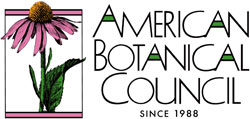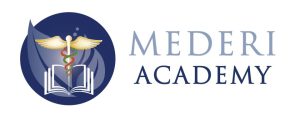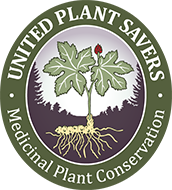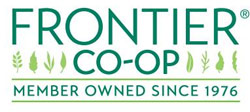April 7 – 9, 2017
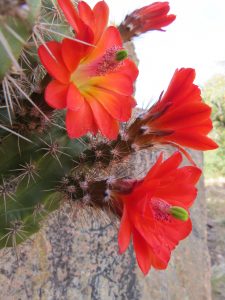
Past conference–thanks to all who attended!
Annual Conference at the Southwest College of Naturopathic Medicine (SCNM) in Tempe, Arizona. See speakers and topics below.
Highlights: Over 30 lectures to choose from, two Friday field studies, and a pre-conference intensive with Lise Alschuler, ND. Schedule
Registration: $359 Online and phone registration now closed. You can register at the door. See schedule below.
Location: SCNM 2140 E. Broadway Rd. Tempe, Arizona 85282. Conference phone: 541-482-3016.
Directions to registration: Drive past the new SCNM building to the parking lot with the solar panels. The Academic Building is next to the parking lot behind the new building. (This is where we’ve always held the conference.) Go in the front entrance with the blue awning and registration is inside the door.
Arrive at 7:30 AM Saturday April 8 to register. You may also sign up for the pre-conference intensive at the door on Friday April 7 at 12:30 PM, if you are also registered for the whole conference.
Photo: Claret Cup Cactus by Mimi Kamp

Featured Presentations
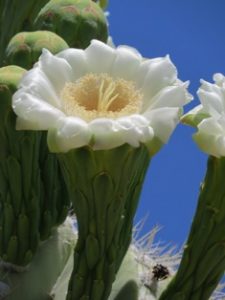
Offering the latest research on botanical therapies for a wide variety of conditions, plus herb walks and medicine making classes. Lectures include:
- Restoring the Day/Night Cortisol Cycle
- Herb-Drug Interactions: Lost In Translation
- Cannabis & Cancer: Sifting The Science
- Multiple Drug Resistance Updates
- Epigenetics and Mental Health
- EENT: Topical Applications Demonstration
- Functional Genetic Mutations and Herbal/Dietary Therapies to Mitigate Effects
- Neurohacking: Cognitive and Performance Enhancing Therapies
- The Problem of Proton Pump Inhibitors for GERD and their Alternatives
Additional Intensive Workshops on Friday April 7
- Friday Morning Field Study with Mimi Kamp (Sorry, this event is full)
- Pre-conference Intensive: Botanicals for Immuno-inflammation with emphasis on Cardiovascular Disease and Cancer with Lisa Alschuler ND
- Friday Afternoon Field Study with JoAnn Sanchez (Sorry, this event is full)

Location: Southwest Conference on Botanical Medicine
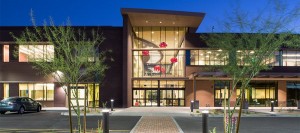
Address: 2140 E. Broadway Rd, Tempe, Arizona
One of the first college campuses constructed with sustainable / green building techniques, Southwest College of Naturopathic Medicine (SCNM) provides an ideal learning environment: comfortable indoor classrooms and an herb garden for outdoor lectures and meals. In October, 2016, the new Commons building (pictured right) received LEED Platinum Green certification for promoting renewable energy, saving resources and having a positive impact on the health of its occupants.
What makes SCNM such a great place for an herbal conference?
Hotel: Embassy Suites, Tempe
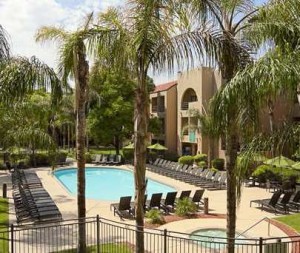
Just minutes away from SCNM, Embassy Suites offers two-room suites beginning at $134/night (plus tax). (800) 305-1369. Group #SB2. Discount good until March 8.
Hotel address: 4400 S. Rural Rd, Tempe, AZ 85282
Local phone: (480) 897-7444
Lodging includes complimentary:
- Airport transportation
- Van service from hotel to SCNM
- Made-to-order hot breakfast with omelet station
- Evening reception with drinks and snacks
- Free WiFi in all rooms

Friday April 7
1:00 PM – 5:00 PM
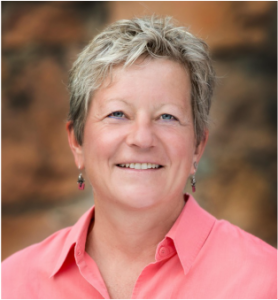
Pre-conference Intensive: Botanicals for Immuno-inflammation with Emphasis on Cardiovascular Disease and Cancer Part 1 and Part 2
Lise Alschuler, ND ($69)
Inflammation is linked to cardiovascular disease, cancer, diabetes and other chronic diseases, but is also necessary for immune activation and cell repair. This intensive explores this complexity and what botanical therapies can be useful, illustrated by applications in heart disease and cancer.
Application submitted for 4 CME hours for naturopathic physicians, of which 2 hours can be pharmacy credits. Approved for Arizona NDs, pending for Oregon.
4 PDA (hours) approved for acupuncturists.
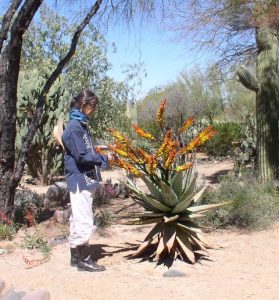
If you are attending this field study, directions were sent to you by email. if you didn’t receive directions, please contact us ASAP. This is a big park and you need to know where to meet Mimi! Thanks
8:30 AM – 12:30 PM
Friday Morning Field Study with Mimi Kamp
McDowell Mountain Regional Park ($55)
This event is now full. Contact us (top of page) to be added to a waiting list.
A Field Study to explore Sonoran Desert medicines for body and psyche. Clear your head and rest your heart in the powerful desert stillness before the week-end fun begins. Read more
If you are attending this field study, directions were sent to you by email. Please don’t follow your GPS, since there are two trailheads about 15 miles apart. Contact us ASAP for correct directions. Thank you!
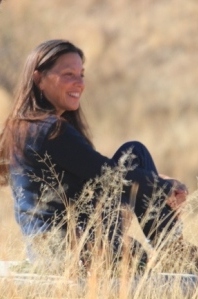
2:00 PM – 6:00 PM
Friday Afternoon Field Study at South Mountain Park
JoAnn Sanchez ($55)
This event is now full. Contact us (top of page) to be added to a waiting list.
Explore the desert environment and learn medicinal plant identification, medicinal uses, harvest techniques and medicine preparation. This field study offers an easy stroll through the desert environment and ends up at a display table where JoAnn will offer many desert goodies to sample. Read more

Saturday April 8
7:30 AM – 8:30 AM Registration: SCNM Academic Building Lobby
8:30 AM – 9:15 AM Opening Meeting: Welcome – SCNM Auditorium
9:30 AM – 11:00 AM (Concurrent lectures–choose one–no need to sign up in advance.)
Herb Drug Interactions: Lost In Translation
Jonathan Treasure
When it comes to herb-drug interactions, the implications of currently available cutting edge data have been sidelined in favor of outdated unsubstantiated reports about the dangers and downsides of combining herbs with drugs. This lecture discusses how recent research can and should be re-framing the herb drug interactions debate and will set the stage for constructive concurrent use of combination herb-drug strategies in a variety of clinical settings.
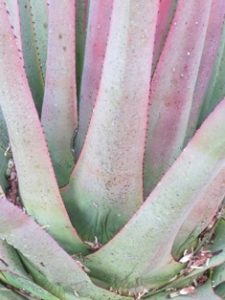
Exploring the Therapeutic Values of Aromatic Plants
Mary Bove, ND
Aromatic plants offer many possibilities as antioxidants, antimicrobials, nervines, cognitive enhancers and more. Their phyto-active compounds include flavonoids, phenols and terpenes. Traditional use,therapeutic application, and optimal preparation specific to the use of volatile compounds are all discussed.
Functional Genetic Mutations and Herbal/Dietary Therapies to Mitigate their Effects
Kenneth Proefrock, ND
Supportive botanical therapies for those with cystic fibrosis, autism spectrum disorders, Fragile X, Klinefelter, Marfan and Down syndromes. These genetic conditions are not necessarily pathological in themselves, but they create different pathological predispositions. This is a good place to have a conversation about such things as neurodiversity, the importance of individualized health care and understanding the far reaching impact that something like a genetic anomaly can have on a person’s life, family and community.
Connecting with the Energetics of Plants and Flowers (an experiential talk in the SCNM herb garden)
Rhonda PallasDowney
Cultivate the awareness of the connection between the energy within a plant and the energy within the individual.
11:00 AM – 11:30 AM
Refreshments and Exhibit Break
11:30 AM – 1:00 PM
Treatment of Bacterial MDR (MRSA, VRE) with Botanical Therapies
David Winston, RH (AHG)
MRSA and other antibiotic resistant infections have become a major health issue. Newspapers report new cases of infections, schools are scrambling to protect students and health care facilities are overwhelmed with hospital-acquired infections. In this class we discuss new research on herbs and essential oils that may offer alternatives to no longer effective antibiotics, as well as herbs that inhibit MDR, bacterial quorum-sensing, biofilm production, bacterial virulence and that may also allow antibiotics to regain efficacy.
Red, White, Black and Blue: Differentiating the Cohoshes
Paul Bergner
Botany, historical uses and recent studies are reviewed for Actaea spp and Caulophyllum. Although not related through constituents or botany, they have many properties in common, and have frequently been used historically as a pair in neurological, respiratory, and obstetrical applications.
Molecular Mechanisms of Action for the “Blood Movers” to Support Circulatory Disorders
Jill Stansbury, ND
The term “blood mover” from Traditional Chinese Medicine embraces the multiple effects of Angelica, Ginkgo, Zingiber and other herbs in treating vascular congestion, hypertension, clots and fluid stasis. This presentation explores the molecular mechanisms of action of these herbs, which helps explain how they effect platelets, inflammatory mediators and endothelial tissues, thus lending them efficacy in treating blood clots, vascular insufficiency, hypertension, fluid stasis, and dementia.
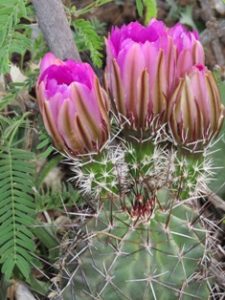
Flower Essences for Chronic Crisis (Lecture and Demonstration in the SCNM Herb Garden)
Mimi Kamp
Inspired by struggling youth in her community, Mimi is exploring plant essences that stabilize and inspire, that encourage self-trust and a stronger sense of meaning, that help minimize the chaotic white noise of chronic stress/trauma and that of electronic overload, helping shift people of any age toward more coherent brain function. Experience the effect of two essences and how these remedies may help with depression, agitation, ADHD, addiction and suppressed terror..
1:00 PM – 2:00 PM
Lunch (with pre-paid ticket) and Exhibit Break
2:00 PM – 3:30 PM
Going Platinum? Crush it with Beneficial Herb-Drug Interactions
Jonathan Treasure
Platinum-based chemotherapy agents remain a standard of care in treating germ cell (ovarian/testicular) and several other malignancies despite their toxicity. Botanicals can enhance the outcomes of platinum drug use by preventing and/or treating both general and specific drug side effects, as well synergistically enhancing the cytotoxic capabilities of the drug. This scenario is used to illustrate the methodological principles of managing beneficial herb-drug interactions based on rigorous preclinical research and phytopharmacological data.
Botanicals to Support Happiness and Reduce Anxiety and Depression
Lise Alschuler, ND
While relieving depression and anxiety is a significant step towards wellness, assisting patients even further along the wellness pathway towards joy and contentment is ultimate healing. Botanicals are important tools to help move people into lasting happiness. Also includes a discussion of the use of botanicals to help patients discontinue anxiolytics and anti-depressants.
Safe Use of Low-Dose Herbs
Eric Yarnell, ND
Review major low-dose herbs and how to prescribe them safely with many case studies to illustrate.
Southwestern Plants for First Aid (Demonstration in the Garden)
7Song
Common Southwestern plants for infections, wounds, burns and other maladies. How to prepare and apply remedies including chaparral, prickly pear cactus, yerba mansa and oak.
3:30 PM – 4:00 PM
Refreshments and Exhibit Break
4:00 PM – 5:30 PM
The Problem of Proton Pump Inhibitors for GERD and their Alternatives
Jill Stansbury, ND
The PPIs and other acid-blocking drugs are commonly prescribed but the consequences are not often recognized. Such drugs can impair digestive health in the long run, calling for deeper acting, restorative therapies. Herbal medicines can help restore motility, support favorable gut flora, and help correct the underlying issues causing reflux, gastric pain and indigestion.
Neurohacking: Cognitive and Performance Enhancing Therapies
Katie Stage, ND
Neurohacking is a new term that encompasses biological interventions to optimize the way people think and perform. In this talk, we discuss cognition and ways to optimize it. Drugs which are often used to this effect will be briefly reviewed, with the focus being on herbal therapies that improve cognitive function, endurance, and focus.
Restoring the Day/Night Cortisol Cycle with Botanical Adaptogens
Mary Bove, ND
A focus on adrenal health through restoration and enhancement of the HPA axis function, and establishing a healthy day/night cortisol cycle. Addressing neuroendocrine restoration with botanical formulas including adaptogens, nervines, and tonics.
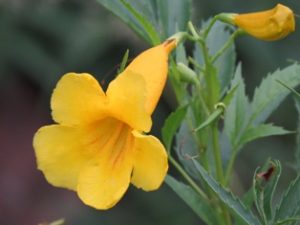
Medicine of the Soul: The Ritual Use of Plants
David Winston, RH (AHG)
Herbs can be used not only as physical medicines, but ritual and spiritual medicines as well. We explore the ceremonial use of herbs in indigenous and traditional cultures, how they are used as incense, baths, amulets, teas, entheogens, and other ways to grow our spirits, heal our souls, bring us good luck and protect us from negative influences.
Herb Walk (Desert Botanical Garden- $22.00 admission)
Phyllis Hogan
The April bloom is usually spectacular in this 145-acre preserve offering over 4,000 desert plant species. Learn to identify the medicinal plants of the desert and how to use them for medicine. Reserve your spot in advance at conference registration on Saturday. Carpools leave from SCNM at 3:40 PM.
6:00 PM – 7:00 PM
Dinner and Exhibit Break
7:00 PM – 8:30 PM
Panel Discussion: Cannabis as an Alternative to Opioids, Benzodiazepenes, NSAIDs and other Pharmaceuticals
Paul Bergner, Kenneth Proefrock and Jonathan Treasure
While these drugs can have unintended side effects, the use of Cannabis as a substitute should be carefully evaluated for efficacy, adverse reactions and best use for either weaning patients from a drug or using it in conjunction to reduce drug dosage and negative effects. In a fair comparison, Cannabis may be better, but a user may also develop tolerance, loss of effect, and side effects from Cannabis. Examine all sides of this topic with three experienced clinicians.

Sunday April 9
9:00 AM – 10:30 AM
Botanical and Nutritional Protocols for the Treatment of Diabetes Mellitus
David Winston, RH (AHG)
What used to be called adult-onset diabetes (Type 2 Diabetes) is now commonly seen in children as well as adults, driven by obesity, poor diet, lack of exercise, nutrient deficiencies and environmental pollutants. In this class we differentiate between the various types of diabetes, discuss the underlying pathophysiology and orthodox treatment of each, and how we can use herbs, diet, healthy lifestyle choices and nutrition supplements to prevent or treat this modern epidemic.
What was that Herb Again? Botanicals for Cognitive Support
Lise Alschuler, ND
There are limited pharmaceutical options for supporting cognitive health – especially for prevention and early changes. Botanical therapies may limit progression of cognitive changes through cerebral activation, increased cerebral blood flow, anti-oxidation and anti-inflammation. A review of the pros and cons of pharmaceutical approaches is included.
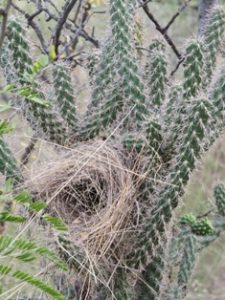
Gastroparesis and Intestinal Motility Disorders
Jill Stansbury, ND
Gastroparesis is a severe form of impaired intestinal motility that may have serious consequences. This session explores the mechanics of intestinal motility and research on its relationship to intestinal health, small intestinal bacterial overgrowth, and influences on digestion, hunger, satiety and overall bowel health. Herbal protocols to support optimal motility and intestinal function are discussed.
Using Flower Essences as Adaptogens (in the SCNM herb garden)
Rhonda PallasDowney
How and when to use essences of Aspen, Crab Apple, Oak, Olive, Walnut and Willow.
10:30 AM – 11:00 AM
Refreshments and Exhibit Break
11:00 AM – 12:30 PM
Commonly Misprescribed Drugs and What to Do About Them
Eric Yarnell, ND
Thiazide diuretics, anti-hypertensive drugs, acid blocking drugs, opioids, and many other agents are commonly prescribed in a manner that is not consistent with best available evidence. How to recognize poor prescribing, what the proper approaches to these drugs are and how to determine which herbs may be of value either as alternatives, or to mitigate the effects.
Eyes, Ears, Nose and Throat (EENT) Demonstration: Preparing and Applying EENT Preparations
Kenneth Proefrock, ND
Learn how to make and apply botanical eye drops/eye washes, nasal sprays/washes and nebulizer solutions. Also covers wound care washes specifically addressing antibiotic resistant skin and mucous membrane infections that have a biofilm component to them. Discusses fungal, bacterial and viral organisms as well as some of the fungal/bacterial crossover species like mycoplasma and valley fever, many of them specific to the desert southwest.
Medical Herbalism and the Therapeutic Order
Paul Bergner
The therapeutic order in healing describes a hierarchy of interventions, from the least invasive and most supportive, to more suppressive and ultimately to surgical interventions. Medical herbalism has applications to offer at each level of this therapeutic order and this lecture demonstrates, in a series of case studies, the power of working with herbal medicines at each level.
Healing Plants from my Medicine Bag
Phyllis Hogan
Collected from the top of the mountain to the desert’s green edge, this is a glimpse inside the medicine bag Phyllis has relied on for over 40 years. From tribal lands to the thriving desert oasis she presents ethnobotanical knowledge gained from her home in the Winter Sun, combining traditional and modern uses for the healing herbs: Wild Tea, Cliff Rose, Yerba Santa, Monarda, Wild Rosemary Mint, Ephedra and Hamula.
12:30 PM – 2:00 PM
Lunch and Exhibit Break
2:00 PM – 3:30 PM
Cannabis & Cancer: Sifting The Science
Jonathan Treasure
The use of Cannabis to treat issues such as cancer pain or chemo-induced nausea and vomiting is well established. However, there is also widespread patient interest in Cannabis as a direct anticancer agent. This session reviews how cancer involves the endocannabinoid system, and presents data on the anticancer properties of Cannabis both in terms of cancer pathophysiology & molecular biology, as well as its effects on specific malignancies.
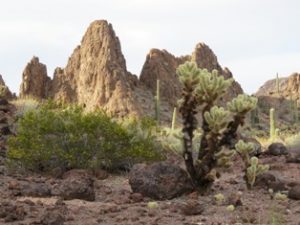
Practicing Herbal Medicine in an Integrative Free Clinic
7Song
What is it like to practice as an herbalist in an integrative free clinic? We talk about clinical skills, patient compliance, donations and working with other practitioners. Treatment strategies are included for common health conditions such as anxiety, pain and chronic conditions.
Childhood Constipation: Natural and Botanical Options
Mary Bove, ND
Persistent constipation can impact a child’s physical and psychosocial well-being. Therapies include education, diet, lifestyle, and botanicals for supporting digestive secretions and intestinal motility; herbal nervines for stress relief and analgesic properties; herbal laxatives for bulking agents and autonomic visceral relaxants. Current OTC and prescription drugs used in pediatric constipation are reviewed.
Medicinal Tea Party on the Garden Lawn
JoAnn Sanchez
Bring your favorite mug and learn how to brew spicy adjuvants, creative carminatives, soothing stomachics and more herbal delights, all from the medicine garden harvest. Medicinal teas brewed to broaden your knowledge and bring smiles.
3:30 PM – 4:00 PM
Refreshments and Exhibit Break
4:00 PM – 5:30 PM
New Insights into Commonplace and Undervalued Herbs
Paul Bergner
Sometimes our most commonplace herbs, often growing abundantly around us, are overlooked in favor of newer, exotic, or imported herbs or preparations. But the commonplace “boring” herbs endure through millennia because they are reliable, potent, and versatile in their applications. We discuss recent research and traditional uses for Urtica, Matricaria, Althaea, Allium sativum, Plantago, Calendula, and Hypericum.
Epigenetics and Mental Health: Botanical and Dietary Influences
Kenneth Proefrock, ND
Investigates the impact that early life events have on full grown adults. Describes the interaction of certain hormones, their effects on neurotransmitter activity and the therapeutic strategies that can be helpful. The narrowly acting pharmaceuticals seldom effect long-term and beneficial change, whereas shifting the ecological makeup of the microbiome, and making use of the subtleties of botanical and dietary interventions are better suited to long-term beneficial outcomes.
Natural Approach to Gout
Eric Yarnell, ND
Incidence of gout is increasing in the US population. In this lecture, pharmaceutical approaches to the condition will be contrasted with dietary and herbal approaches, using case studies to illustrate the efficacy of the natural approach and when drugs might be necessary. This will include some discussion of uric acid kidney stones and tophi, the other two manifestations of gout.
Recent Research into the Immunomodulatory Effects of Fritillaria thunbergii, Astragalus membranaceus and Echinacea purpurea
Jeffrey Langland, PhD
Part 1 describes the use of Fritillaria thunbergii as an adjuvant therapy in vaccination (variolation) against smallpox in ancient Chinese medicine, and the comparison with modern vaccine equivalents of microbial attenuation and the use of immunological adjuvants. Part 2 describes in vitro and in vivo testing of astragalus extract, which defines its role in priming a potential immune response as well as its effect on blood flow and wound healing. Part 3 addresses the question of whether Echinacea purpurea is actually an effective cold and flu remedy. Results suggest that different portions of the echinacea plant may have varying effects on both the immune and antiviral response.
5:30 PM –5:45 PM
Closing Meeting

7Song is director of the Northeast School of Botanical Medicine and practices as a clinical herbalist at Ithaca Free Clinic in Ithaca, NY. A native of the northeastern US, he has nevertheless spent a lot of time in the southwestern deserts admiring, photographing and wildcrafting plants on his own, and while teaching botany for Michael Moore at the Southwest School of Botanical Medicine.
Presentations:
1. Southwestern Plants for First Aid (Demonstration in the Garden)
2. Practicing Herbal Medicine in an Integrative Free Clinic
Dr. Lise Alschuler, ND, FABNO practices naturopathic oncology out of Naturopathic Specialists, LLC. Dr. Alschuler is the Executive Director of TAP Integrative, a nonprofit educational resource for integrative practitioners. She co-hosts a radio show, Five To Thrive Live! and is co-founder of the iTHRIVE Plan, a mobile web application that creates customized wellness plans for cancer survivors. Dr. Alschuler works as an independent consultant in the area of practitioner and consumer health education. She has been an invited speaker to more than 100 scientific/medical conferences, published 16 peer-reviewed articles, been a co-investigator on 5 research studies, written 6 chapters for medical textbooks, and has co-authored two books, Definitive Guide to Cancer, now in its 3rd edition, and Definitive Guide to Thriving After Cancer.
Presentations:
1. Pre-conference Intensive April 7: Botanicals for Immuno-inflammation with emphasis on Cardiovascular Disease and Cancer
2. What was that herb again? Botanicals for cognitive support
3. Botanicals to support happiness and reduce anxiety and depression
Paul Bergner is the Director of the North American Institute of Medical Herbalism in Portland, Oregon, where he offers seminar training in clinical skills, medical herbalism, nutrition, and nature cure. He supervised a teaching clinic in Boulder, Colorado from 1996 until 2012, has edited the Medical Herbalism Journal since 1989, and is the author of seven books on herbal medicine.
Presentations:
1. Red, White, Black and Blue: Differentiating the Cohoshes
2. New Insights into Commonplace and Undervalued Herbs
3. Medical Herbalism and the Therapeutic Order
A clinical medical herbalist, Mary Bove had a practice in family medicine in Brattleboro, Vermont for over 20 years. She is the author of An Encyclopedia of Natural Healing for Children and Infants, and recently produced an iPhone App, Momma Nature’s Food Pharm Guide. She is currently the botanical educator for Gaia Herbs, Inc.
Presentations:
1. Restoring the Day/Night Cortisol Cycle with Botanical Adaptogens
2. Childhood Constipation; Natural and Botanical Options –and Drug Review
3. Exploring the Therapeutic Values of Aromatic Plants
The owner of Winter Sun Trading Company in Flagstaff, Phyllis Hogan founded the Arizona Ethnobotanical Research Association (AERA) to investigate, document and preserve native plant usage in the Southwest. She teaches ethnobotany programs for the Navajo & other tribes.
Presentations:
1. Herb Walk at the Desert Botanical Garden
2. What’s in My Medicine Bag (Presentation in the Herb Garden)
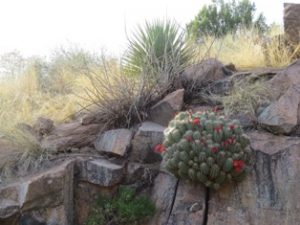
Mimi Kamp has been making plant medicine in the Southwest for over 35 years. Her field classes and presentations emphasize habitat, sustainability, Mexican and ethnobotanical usage, and direct perception and communication with the plants themselves. She is a well-known botanical illustrator and photographer.
Presentations:
1. Friday Morning Field Study (8:30 AM – 12:30 PM)
2. Flower Essences for Support in Times of Crisis
Jeffrey Langland has spent much of his career investigating complex cellular defenses and immune responses against microorganisms, and comparing similarities between plant and human defenses against viruses. As a full professor and chair of the research department at SCNM, he brings new insight and innovative approaches to research for students in the field of naturopathic medicine.
Presentation:
1. Recent Research into the Immunomodulatory Effects of Fritillaria thunbergii, Astragalus membranaceus and Echinacea purpurea
The founder of Living Flower Essences and The Center for Plant Studies and Healing Arts in Cottonwood, Arizona, Rhonda is an herbalist and flower essence practitioner who teaches herbal studies, plant life and healing journeys in nature. She is the author of Voices of Flowers and The Healing Power of Flowers.
Presentations:
1. Connecting with the Energetics of Plants and Flowers: Developing Awareness of how the Energy of a Plant Connects with the Energy within You (SCNM Herb Garden)
2. Using Flower Essences as Adaptogens (SCNM Herb Garden)
A naturopathic doctor practicing in Sun City, Arizona, Kenneth Proefrock is also the owner of Vital Force Naturopathic Compounding. He is the vice-president of the North American Board of Naturopathic Examiners and chair of the biochemistry portion of the naturopathic physician’s licensing exam.
Presentations:
1. Eyes, Ears, Nose and Throat Demonstration: Preparing and Applying EENT preparations
2. Functional Genetic Mutations and Herbal/Dietary Therapies to Mitigate their Effects (Down’s, Marfan, Klinefelter Syndromes, Autism, Cystic Fibrosis and others)
3. Epigenetics and Mental Health: Botanical and Dietary Influences
JoAnn Sanchez is the director of the herbalist training program at Southwest Institute of Healing Arts in Scottsdale (a 700-hour diploma program), for which she has recently published five textbook manuals. She teaches at the Southwest College of Naturopathic Medicine, where she also tends the medicine garden.
Presentations:
1. Friday Afternoon Field Study 2 – 6 PM
2. Medicinal Tea Party in the SCNM Herb Garden
Katie Stage is a naturopathic physician practicing at the SCNM clinic in Tempe. She is a full-time faculty member at SCNM, teaching botanical medicine, hydrotherapy, GYN lab, and clinical skills. She also teaches Mayan healing techniques.
Presentation:
1. Neurohacking: Cognitive and Performance Enhancing Therapies
Jill Stansbury, ND
A naturopathic physician, Jill Stansbury specializes in women’s health, mental health, and chronic disease. She teaches on the faculty of National College of Naturopathic Medicine, where she was chair of the botanical medicine department for 25 years. She travels extensively in the Peruvian Amazon to study indigenous healers and their herbs.
Presentations:
1. The Problem of Proton Pump Inhibitors for GERD and their Alternatives
2. Addressing Allergic Conditions: Molecular Mechanisms of Action for the “Blood Movers”
3. Gastroparesis and Intestinal Motility Disorders.
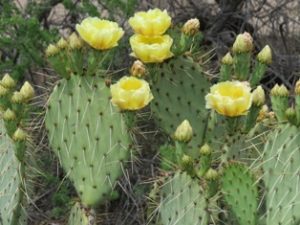
Jonathan Treasure is a British medical herbalist now resident in Oregon. He graduated in medical sciences from Cambridge University, and in herbal medicine from the UK School of Phytotherapy. His clinical consultancy, now web-based, combines botanicals with cutting-edge oncological approaches to create personalized integrative treatment strategies for cancer patients.
Jonathan is a well-known international speaker, herbal blogger and author. He wrote the herbal monographs for the textbook “Herb, Drug, Nutrient Interactions: Clinical Implications and Therapeutic Strategies” (Mosby Medical, 2008) and is currently writing a patient guide book on Cannabis and Cancer. He has been described as a thought leader in western herbal medicine for his fluent ability to bridge the worlds of biomedical science and traditional herbalism as well as philosophy and practice.
Presentations:
1. Herb Drug Interactions: Lost In Translation
2. Going Platinum: Crush it with Beneficial Herb-Drug Interactions
3. Cannabis and Cancer: Sifting the Science
David Winston is an herbalist and ethnobotanist with 41 years of training and clinical experience in Cherokee, Chinese and Western/Eclectic herbal traditions. He offers a two year clinical training program in botanical medicine at David Winston’s Center for Herbal Studies and is the founder and president of Herbalist and Alchemist, Inc.
Presentations:
1. Medicines of the Soul: The Ritual Use of Plants
2.Treatment of Bacterial MDR (MRSA, VRE) with Botanical Therapies
3. Botanical and Nutritional Protocols for Diabetes Mellitus
Eric Yarnell is associate professor in the department of botanical medicine at Bastyr University and chief medical officer at Northwest Naturopathic Urology. He is the author and co-author of numerous articles and books for practitioners including Clinical Botanical Medicine and Natural Approach to Gastroenterology.
Presentations:
1. Natural Approach to Gout
2. Commonly Misprescribed Drugs and What To Do About Them
3. Safe Use of Low-Dose Herbs
Registration Fees and Information
Registration: $359 Online and phone registration now closed. You can register at the door. See schedule below.
Location: SCNM 2140 E. Broadway Rd. Tempe, Arizona 85282. Conference phone: 541-482-3016.
Directions to registration: Drive past the new SCNM building to the parking lot with the solar panels. The Academic Building is next to the parking lot behind the new building. (This is where we’ve always held the conference.) Go in the front entrance with the blue awning and registration is inside the door.
Arrive at 7:30 AM Saturday April 8 to register. You may also sign up for the pre-conference intensive at the door on Friday April 7 at 12:30 PM, if you are also registered for the whole conference.
Phone 541-482-3016
Cancellations: Before March 23, registration fees will be refunded minus $50 processing per registrant. No refunds can be given after 3/23/17. Refund requests should be sent in writing or email to the conference office.
Herbal Conference Location
Southwest College of Naturopathic Medicine
2140 E. Broadway Rd.
Tempe, AZ 85282
Read more about SCNM .
Lodging
Embassy Suites, Tempe:
Rooms start at $134/night plus tax. (800) 305-1369. Group #SB2. Discount good until March 7.
NEW! Register for your room online. It only takes two minutes. Click here to get started.
Lodging includes complimentary:
-Airport transportation
-Van service from hotel to SCNM.
-Made to order hot breakfast with omelet station
-Evening reception with drinks and snacks.
-Free WiFi in all rooms.
Transportation
The closest airport is Sky Harbor International Airport. If you are flying to Sky Harbor Airport in Phoenix, van service is complimentary to the Embassy Suites in Tempe. Call the front desk 480-897-7444 when you arrive and they will send the van for you. For other airport transportation, use the SuperShuttle.
If you are driving, the Southwest College of Naturopathic Medicine (SCNM) is located at 2140 E. Broadway Rd in Tempe, AZ (on the north side of East Broadway, just west of the intersection of Price and E. Broadway).
Continuing Education
View full conference program here.
Pending approval, we offer CE, CME, CNE, PDA and CEUs for:
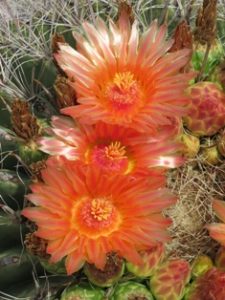
Arizona NDs: Approved by SCNM CE Board for 21.5 possible general hours of which 13.5 can be pharmacy. Includes attendance at Friday morning and afternoon events.
Oregon NDs Just approved by OBMN for 17.5 possible general hours pending of which 13.5 can be pharmacy for selected lectures. Includes attendance at Friday pre-conference intensive.
Detailed CME credit chart
• Acupuncturists
21.5 PDA points (hours) approved by NCCAOM, which includes attendance at Friday morning and afternoon events. PDA details here
• Nurses approved for 17.5 contact hours possible for select lectures (includes attendance at the Friday afternoon Field Study with JoAnn Sanchez). Read more CNE details
Application for 17.5 contact hours approved by the Western Multi-State Division, an accredited approver by the American Nurses Credentialing Center’s Commission on Accreditation.
• A certificate of attendance is available to any participant who requests it
All CE applications have been submitted. Approvals are listed here as they arrive.
Lecture Notes
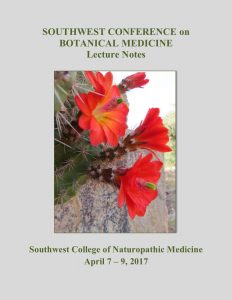 Lecture notes are compiled into an online book (proceedings book) which is available to all registrants at no cost. Around the middle of March, registrants will be sent a link and password to access the teacher materials. Printed books are also available for $20 at the conference ($30 afterwards).
Lecture notes are compiled into an online book (proceedings book) which is available to all registrants at no cost. Around the middle of March, registrants will be sent a link and password to access the teacher materials. Printed books are also available for $20 at the conference ($30 afterwards).
We thank Mimi Kamp for the desert photos on this page, and especially the cover photo of claret cup cactus (Echinocereus triglochidiatus). Her keen eye and close-up lense helps us to see the desert in a whole new light! Thank you Mimi!
Exhibitors
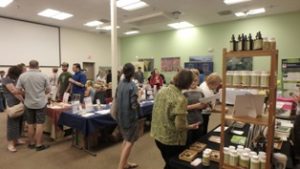
If you are interested in joining us in the exhibit hall, please contact us and we will send information.
Registration includes a table for exhibiting and selling products or services and two conference registrations.
Thank You!
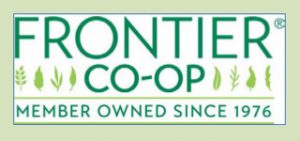
Thank you to Frontier Natural Foods Co-op for their sponsorship of this online brochure. We thank Frontier for their continued annual support, and especially for making this page possible.

| FRIDAY, APRIL 7 |
||||||
| 8:30 AM – 12:30 PM | Field Study—Mimi Kamp Location to be announced ($55) | |||||
| 1:00 PM - 5:00 PM | Pre-conference intensive: Immuno inflammation/Cancer/Heart Disease Lise Alschuler ($65) | |||||
| 2:00 PM - 6:00 PM | Field Study—JoAnn Sanchez Location to be Announced ($55) | |||||
| SATURDAY, APRIL 8 |
||||||
| 7:30 AM - 8:30 AM | Registration- Southwest College of Naturopathic Medicine – Lobby | |||||
| 8:30 AM - 9:15 AM | Welcome- SCNM Auditorium | |||||
| 9:30 AM - 11 AM | Beneficial Herb-Drug Interactions Jonathan Treasure | Therapeutic Value of Aromatic Plants Mary Bove | Functional Genetic Mutation Conditions Kenneth Proefrock | Connecting with the Energetics of Plants Rhonda PallasDowney |
||
| 11:00 AM - 11:30 AM | Refreshments/Exhibit Break | |||||
| 11:30 AM - 1 PM | Multiple Drug Resistance David Winston | Differentiating the Cohoshes Paul Bergner | Allergic Conditions: Mechanisms of Action Jill Stansbury | Flower Essences for Chronic Crisis Mimi Kamp |
||
| 1:00 PM - 2 PM | Lunch and Exhibit Break | |||||
| 2:00 PM - 3:30 PM | Going Platinum: Chemotherapy and Botanicals Jonathan Treasure | Botanicals to Support Happiness and Reduce Anxiety Lise Alschuler | Therapeutic Uses of Low Dose Botanicals Eric Yarnell | Southwest Plants for First Aid 7Song |
||
| 3:30 PM - 4 PM | Refreshments/Exhibit Break | |||||
| 4:00 PM - 5:30 PM | Proton Pump Inhibitors: Side Effects and Botanicals Jill Stansbury | Neurohacking Katie Stage | Restoring the Day/Night Cortisol Cycle Mary Bove | Ritual Uses of Herbs David Winston | Herb Walk Bot Garden Phyllis Hogan |
|
| 5:30 PM - 6:30 PM | Dinner and Exhibit Break | |||||
| 7:00 PM - 8:30 PM | Panel: Cannabis as an Alternative to Opioids and other Drugs Paul Bergner, Jonathan Treasure and Kenneth Proefrock |
|||||
| SUNDAY APRIL 9 | ||||||
| 9:00 AM - 10:30 AM | Diabetes Mellitus David Winston | Botanicals for Cognitive Support Lise Alschuler | Gastroparesis and Intestinal Motility Conditions Jill Stansbury | Flower Essences as Adaptogens Rhonda PallasDowney |
||
| 10:30 AM - 11 AM | Refreshments/Exhibit Break | |||||
| 11 AM - 12:30 PM | Commonly Misprescribed Drugs Eric Yarnell | EENT Preparations: Demonstration Kenneth Proefrock | Medical Herbalism and the Therapeutic Order Paul Bergner | What’s in my Medicine Bag Phyllis Hogan |
||
| 12:30 PM - 1:30 PM | Lunch and Exhibit Break | |||||
| 2:00 PM - 3:30 PM | Cannabis and Cancer Jonathan Treasure | Practicing Herbal Medicine in an Integrative Free Clinic 7Song | Constipation in Children Mary Bove | Medicinal Tea Party JoAnn Sanchez | ||
| 3:30 PM - 4 PM | Refreshments/Exhibit Break | |||||
| 4:00 PM - 5:30 PM | Commonplace Herbs Paul Bergner | Epigenetics and Mental Health Kenneth Proefrock | Natural Approaches to Gout Eric Yarnell | Research on Immunomodulators Jeffrey Langland, PhD |
||
| 5:30 PM - 5:45 PM | Closing Meeting | |||||
Phone 541-482-3016
We look forward to seeing you there!

